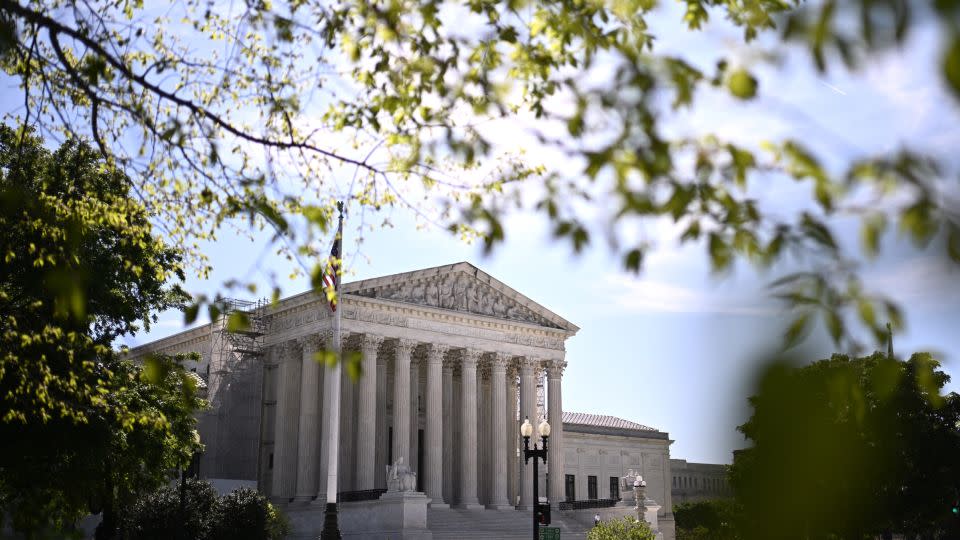Supreme Court saves consumer protection agency after a challenge from conservatives and the payday lending industry

- Oops!Something went wrong.Please try again later.
- Oops!Something went wrong.Please try again later.
The Supreme Court ruled Thursday that the federal watchdog created in response to the 2008 financial meltdown may continue to operate in its current form, brushing aside claims from the payday lending industry that could have severely jeopardized years of consumer-friendly banking regulations.
Justice Clarence Thomas wrote the majority opinion for a 7-2 court.
The ruling is a victory for the Biden administration, which argued that a lower court’s decision invalidating the Consumer Financial Protection Bureau’s funding would have gutted years of popular regulations on mortgages, car loans and credit cards. Congress created the bureau in 2010 to protect consumers from financial scams.
Republicans have long been skeptical of the agency, originally envisioned by Massachusetts Democratic Sen. Elizabeth Warren.
The payday lending groups sued over a 2017 bureau rule that prohibited attempts to withdraw payments from accounts after two consecutive tries failed due to insufficient funds. Repeated withdrawal attempts can subject borrowers to extra banking fees.
While most of the industry’s claims failed in lower courts, the New Orleans-based 5th US Circuit of Appeals accepted one of them: The appeals court ruled that the agency’s funding violated a founding principle that Congress alone has the power of the purse. Because of that, the conservative appeals court tossed the payday lending rule. The Biden administration appealed to the Supreme Court in 2022.
Rather than finance the CFPB through annual appropriations, Congress specified that it receive funding from the combined earnings of the Federal Reserve system each year, up to about $600 million. That unusual structure was created to safeguard the bureau’s independence from the whims of whatever party controls Congress.
“Although there may be other constitutional checks on Congress’ authority to create and fund an administrative agency, specifying the source and purpose is all the control the Appropriations Clause requires,” Thomas wrote.
CNN Supreme Court analyst Steve Vladeck said the ruling is another instance of the high court not endorsing controversial opinions from the 5th Circuit.
“Today’s decision is a rather decisive repudiation of the 5th Circuit, which embraced a novel constitutional theory that would’ve had potentially cataclysmic ramifications,” said Vladeck, a professor at the University of Texas School of Law. “Not for the first time this term, and not for the last, it’s a sign that the New Orleans-based appeals court is too far to the right for even this Supreme Court.”
In dissent, Justice Samuel Alito said that the majority’s opinion gave far too much leeway to the agency.
“In sum, the CFPB’s unprecedented combination of funding features affords it the very kind of financial independence that the appropriations clause was designed to prevent,” Alito wrote in a dissent joined by Justice Neil Gorsuch. “It is not an exaggeration to say that the CFPB enjoys a degree of financial autonomy that a Stuart king would envy.”
Four years ago, at the end of the Trump administration, the Supreme Court sided against the bureau, finding that its leadership structure violated the principle of separation of powers because the president was restricted from removing the director. That prohibition was also put in place to shield the agency from partisan politics.
This story has been updated with additional details.
For more CNN news and newsletters create an account at CNN.com

